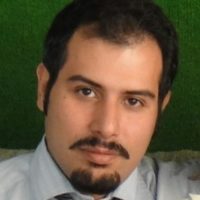
Robin Chhabra
Assistant Professor, Canada Research Chair Tier 2, Department of Mechanical and Aerospace Engineering. Research applications: light-weight space manipulators for autonomous capture and release; space debris removal; planetary exploration rovers; hierarchical control of space missions.
| Degrees: | BASc (with Honours), Aerospace Engineering (Sharif University of Technology), MASc, Aerospace Engineering (University of Toronto),PhD, Aerospace Engineering (University of Toronto) |
| Phone: | (613) 520-2600 x 4251 |
| Email: | robin.chhabra@carleton.ca |
| Office: | Mackenzie, Room 3244 |
| Website: | Autonomous Space Robotics and Mechatronics Laboratory |
Robin Chhabra is the director of the Autonomous Space Robotics and Mechatronics (ASRoM) Laboratory in the Department of Mechanical and Aerospace Engineering at Carleton University. He received his BASc (2006) from Sharif University of Technology, and his MASc (2008) and PhD (2013) in Mechatronics and Space Robotics – with minor in Mathematics – from the University of Toronto. He then joined the University of Calgary as a postdoc to pursue his research in Geometric Mechanics and Control. From 2014 to 2017, Robin was a Guidance, Navigation and Control Engineer at MacDonald Dettwiler and Associates Ltd. (MDA). At MDA, he was involved in many leading-edge space programs, where Canada as part of the international community makes contributions to space exploration. Mainly, his research was centred around studying off-nominal behaviour of the Mobile Servicing System (MSS) operating on the International Space Station (ISS) and improving the traction control of the Lunar Exploration Light Rover (LELR). In addition to his research towards increasing the reliability and efficiency of the existing space robotic systems, Robin was contributing to the next generation of space missions, such as ExoMars and Deep-Space Exploration Robotics (DSXR).
RESEARCH INTERESTS:
Robotics
- Dynamical reduction and nonlinear control of underactuated systems
- Nonlinear and affine nonholonomic constraints
- Path planning and control of multibody systems at singularity
- Lie Groupoids for kinematics
- Nonlinear modal analysis of elastic multibody systems
- Orbital perturbations for elastic multibody systems
- Robust and adaptive geometric traction control of nonholonomic systems
- Higher order Lagrangian systems with symmetry
Mechatronics
- Geometric modeling of multi-physics systems
- Multi-objective optimization
- Concurrent design
- Hardware-in-the-loop simulation